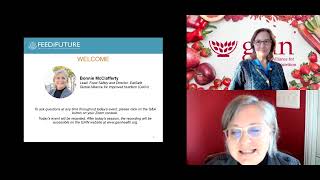While traditional markets are at the center of the food supply for many consumers, launching consumer-centered food safety efforts to impact traditional food markets requires understanding of mechanisms that resonate with and impact target market actors, including consumers and vendors. Yet, limited data focuses on food safety risk and behaviors by consumers and vendors. Few tools have been developed and informed by traditional market actors. Lastly, food safety behaviors have rarely been translated into intervention design for this challenging and vulnerable context.
This webinar will inform participants how consumer behavior information can be used to inform food safety intervention design in traditional markets in low- and middle-income countries, as well as the variety of approaches currently in use that are consumer- and market-actor focused, behavioral in nature, measurable over time, and informed by community norms, local priorities, and cultural practices. The webinar will highlight the following learning and development approaches:
- Using quantitative, global behavioral data to understand how consumers prioritize risks around food safety;
- Elevating story-driven qualitative research to inform interventions impacted by social, cultural and context-specific factors;
- Applying Human-Centered Design tactics for the development of consumer-centered food safety interventions; and
- Integrating behavioral science to place consumers at the center of the interventions through an understanding of the drivers of their decisions.
Videos

